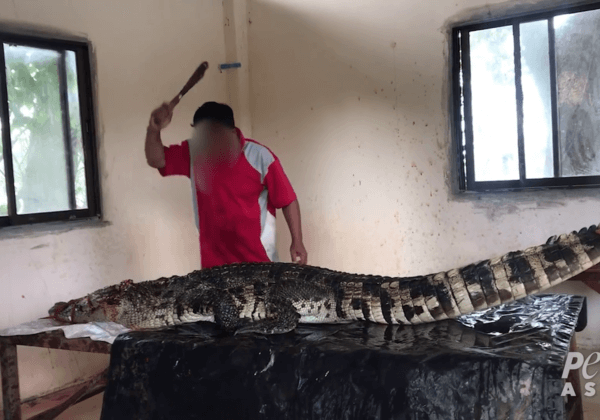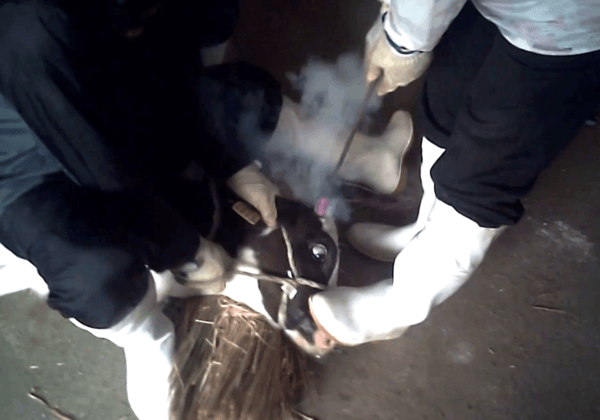A Win for Animals! China Reinstates Ban on Rhino Horn and Tiger Bone
Update: In a remarkable win for animals, Chinese officials have reinstated the country’s ban on rhino horn and tiger bone. While China’s State Council has announced only a temporary reinstatement of the ban so far, PETA and animal advocates around the world will continue working to ensure that rhinoceroses and tigers aren’t killed for unproven ancient remedies.
Originally posted November 1, 2018:
In an unexpected and unexplained move, China has reversed its 25-year ban on rhino horns and tiger bones. It will now allow both body parts of endangered animals to be used by certified hospitals and doctors in “research” and recipes for ancient medicines, which haven’t been proved to have beneficial effects for humans.
With only around 3,900 tigers and 30,000 remaining rhinos in the world, conservationists say China's reversal could have a devastating impact on the endangered wild animals. https://t.co/Xf7knrNqfn
— Twitter Moments (@TwitterMoments) October 30, 2018
Only about 30,000 rhinoceroses and fewer than 4,000 tigers are left in nature, but poachers are still killing them to sell their body parts. Reversing this ban creates a larger market for animal-part “remedies,” encourages poaching, and pushes these animals closer to extinction.
China’s cabinet specified that the horns and bones should come from rhinos and tigers held captive on breeding farms. But it would be extremely challenging to determine whether these parts originated from animals killed in captivity or in the wild, especially since reports say that animals are taken from the wild and sold to these farms. In addition, rhino and tiger farms are not safe havens for animals.

Rhinoceroses are imprisoned on dirt farms with concrete stalls for shelter, and horns are sawed off live animals.

Tigers are confined to similar factory farm conditions, in filthy metal and concrete cells. They are often used for tourist photo ops, as the farms present themselves as rescues or sanctuaries and claim that the money they raise from visitors goes to the animals’ care. In actuality, the big cats are killed as soon as they reach full size and their body parts are sold for rugs, medical “remedies,” meat, and tourist souvenirs.
“They are usually killed by electrocution, an overdose of lethal drugs, strangulation (by putting a noose around the neck) or a combination,” a source revealed to The Dodo, asking to remain anonymous.
WTF! Tiger Meat, Tiger Wine, & Bear Paw Are Menu Options in #Laos ? More info here ➡️ https://t.co/LeP1FX5LNm pic.twitter.com/e0fzK4avzo
— PETA Asia (@PETAAsia) June 22, 2017
China’s new law will also help fund these abusive facilities.
You can help by pledging never to support animal photo ops, rides, or other such interactions. When wild animals are allowed to have close contact with humans, you can be certain that they’ve been physically abused to make them fearful and obedient.








